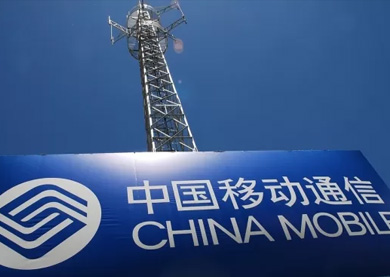Lithium-Ion UPS Battery vs VRLA UPS Battery: How to Make the Right Choice?
 2025-08-06
2025-08-06What is a UPS Battery?
A UPS battery is an important part of an Uninterruptible Power Supply (UPS) system. It provides backup power to keep electronic devices and systems running during power outages. UPS batteries are commonly used in data centers, hospitals, telecom infrastructure, and home offices, where constant power is needed. The two most common types of UPS batteries are lithium-ion and VRLA (Valve-Regulated Lead-Acid) batteries.
Lithium-Ion UPS Battery: A Modern Solution for Backup Power
Lithium-ion UPS batteries are becoming increasingly popular in various industries due to their higher energy density, longer lifespan, and more efficient performance compared to traditional lead-acid batteries.
Advantages of Lithium-Ion UPS Batteries:
● Longer Lifespan: Lithium-ion batteries can last 10-15 years, much longer than VRLA batteries, which typically last 3-5 years.
● Smaller and Lighter: Lithium-ion UPS batteries are more compact and lightweight, making them ideal for environments with limited space.
● Higher Efficiency: These batteries provide better energy density, meaning they can store more power in a smaller volume. They also charge faster and perform better under high load conditions.
● Lower Maintenance: Lithium-ion UPS batteries require minimal maintenance, which reduces long-term operational costs.
● Environmentally Friendly: Lithium-ion batteries are recyclable and have less environmental impact than traditional lead-acid batteries, making them a more sustainable option.
Disadvantages of Lithium-Ion UPS Batteries:
● Higher Initial Cost: While lithium-ion UPS batteries offer long-term savings, their upfront cost can be significantly higher than VRLA batteries.
● Temperature Sensitivity: Lithium-ion batteries perform optimally in a temperature range of 20-25°C, and extreme conditions can affect their performance and lifespan.
VRLA UPS Battery: A Tried-and-Tested Backup Power Solution
VRLA UPS batteries have been the standard for many years because they are reliable and affordable. They use lead-acid chemistry, and a valve regulates the pressure inside the battery to prevent it from building up too much.
Advantages of VRLA UPS Batteries:
● Lower Initial Cost: VRLA UPS batteries are generally much more affordable than lithium-ion options, making them an attractive choice for businesses with a limited budget.
● Proven Technology: Lead-acid batteries have been used for decades in backup power systems, making them a reliable choice in many industries.
● Wider Temperature Tolerance: VRLA batteries have a wider temperature range than lithium-ion batteries, allowing them to perform better in tougher environments.
● Easy Availability: VRLA batteries are widely available, and there is a large number of manufacturers and suppliers.
Disadvantages of VRLA UPS Batteries:
● Shorter Lifespan: VRLA batteries typically last 3-5 years, which means more frequent replacements compared to lithium-ion batteries.
● Heavier and Bulkier: These batteries are larger and heavier than lithium-ion batteries, which can be a disadvantage if space is limited.
● Higher Maintenance: Although VRLA batteries need less maintenance than traditional flooded lead-acid batteries, they still require regular checks, such as monitoring electrolyte levels in some cases.
● Lower Energy Density: VRLA batteries have lower energy density, meaning they need more space to store the same amount of energy as lithium-ion batteries.
Lithium-ion UPS batteries vs VRLA UPS batteries: Which is better?
When choosing between lithium-ion and VRLA UPS batteries, consider the following factors:
1. Budget
If you're working with a limited budget, VRLA batteries might be a better choice. They are more affordable upfront and are a good option for small to medium-sized businesses.
However, if you're willing to spend more initially and want long-term savings, a lithium-ion UPS battery is a better investment. Its higher upfront cost will be balanced by lower maintenance costs and a longer lifespan.
2. Space Considerations
If space is limited, lithium-ion UPS batteries are the better choice. Their smaller size and lighter weight make them perfect for places with space constraints, like server rooms or small offices. VRLA batteries, being bulkier, may not be ideal for areas where space is limited.
3. Lifespan and Maintenance
If you need a solution that requires minimal maintenance and offers a long lifespan, a lithium-ion UPS battery is the better choice. Its 10-15 year lifespan and low-maintenance requirements make it ideal for businesses looking for a hassle-free solution.
For businesses willing to accept shorter lifespans and occasional maintenance, a VRLA UPS battery could still meet your needs at a lower cost.
4. Efficiency and Performance
If energy efficiency, performance, and fast recharge times are crucial for your operations, lithium-ion batteries offer better performance. They are more energy-efficient and recharge faster than VRLA batteries.
VRLA batteries are reliable, but they may not be as efficient as lithium-ion batteries and can take longer to charge.
Conclusion
Both lithium-ion UPS batteries and VRLA UPS batteries have their pros and cons. The choice ultimately depends on your specific needs, budget, and how much you value long-term savings and performance.
● Choose a lithium-ion UPS battery if you want a longer lifespan, better efficiency, and low maintenance, and are willing to invest more upfront.
● Choose a VRLA UPS battery if you're on a tight budget, need a reliable backup power solution, and are okay with replacing the battery more often.
Vision Battery offers a range of both lithium-ion and VRLA UPS batteries, ensuring that you can find the right solution to suit your backup power needs. Whether you're looking for long-term performance or an affordable solution, our batteries are designed to keep your systems running smoothly and securely.




























 Name
Name Tel
Tel Email
Email Country
Country Company
Company Information
Information